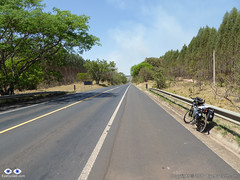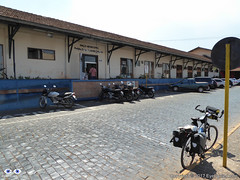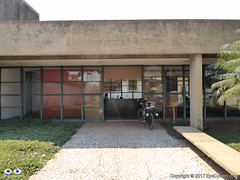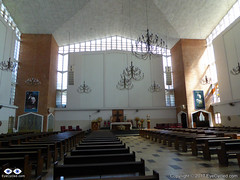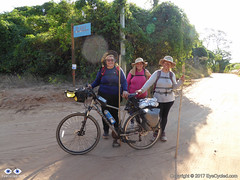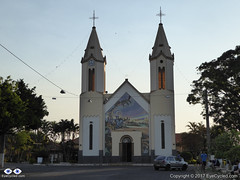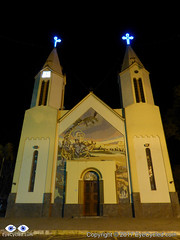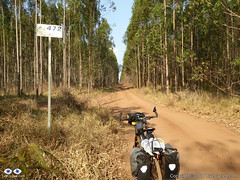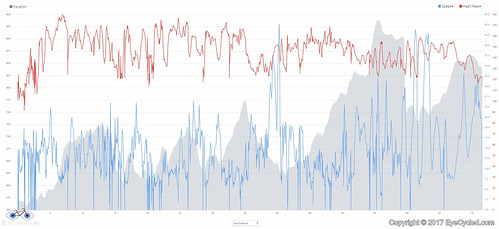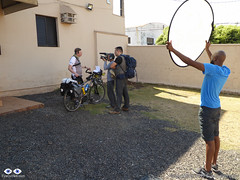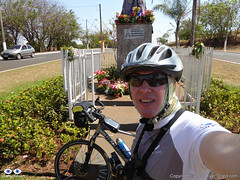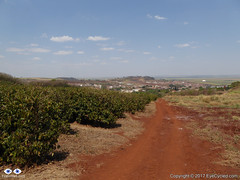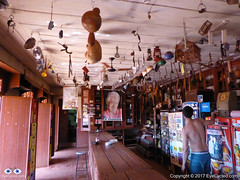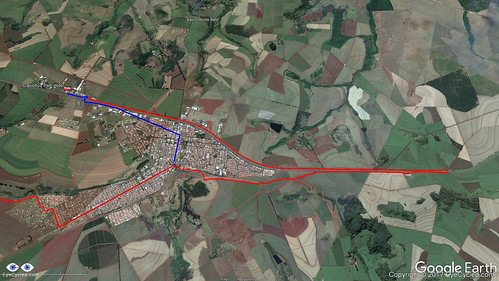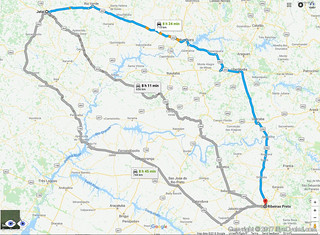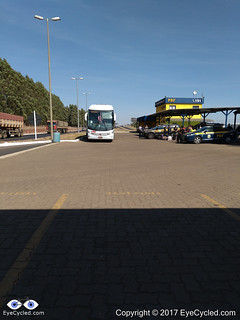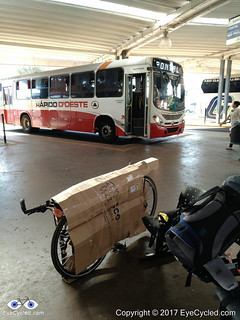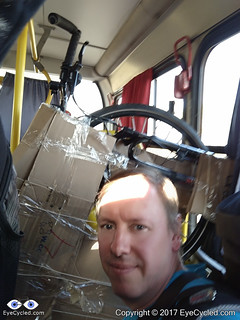In this post…
If this is the first post you read on this series, I recommend you take a look at the introduction post published on the 28th of February 2018. That post explains what the Faith’s Way is, my reasons for doing it and provides information that might be useful to you, if you decide you want to do it too.
In this post I will cover the 4th day of this 12 day / 600 Km journey between the town of Casa Branca and the rural hostel of Dona Cidinha (Dona translates to Mrs. in Portuguese, hence Mrs. Cidinha) via the town of Vargem Grande do Sul, all in the federal state of São Paulo.
As explained in the introduction post, based on the experience I had when creating videos for the Camino de Santiago in 2015, when I started this series my intention was to divide the distance between the major towns or urban centres as separate stages, otherwise the videos would become too long to watch. It turns out, however, that many pilgrims prefer to overnight away from urban areas in one of the many rural hostels along the caminho.
So, if I was to follow this rule, stage 7 would be between Casa Branca and Itobi, stage 8 between Itobi and Vargem Grande do Sul and stage 9 between Vargem Grande do Sul and the village of São Roque da Fartura, however as I stopped in Dona Cidinha’s hostel that night, half of stage 9 is covered here and the other half will be covered in the next post.
You can download the official map of the Caminho from the website of the Friends of the Caminho Association. From there you can also download a list of credentialed accommodations for your journey. Most places in that list are simple family owned pilgrims’ hostels. Some in very rural locations (farms) others in more urban areas. Some establishments are hotels. Family owned Pilgrims’ hostels along the way have usually a set value that includes the meals as well, typically dinner and breakfast, but all hotels listed there will also offer a reduced pilgrim’s rate provided you present them your pilgrim’s credentials.
Measures and expenses for this day (Garmin Telemetry)
-
- Distance traveled from Casa Branca to Dona Cidinha’s Rural Hostel : 59.73 Km
- Total duration of this journey: 7h 6min
- Total moving time: 4h 39m
- Overnight location at the end of the journey:
- Dona Cidinha’s Rural Hostel (they do not speak English), +55 19 9 81700069
- Total expenses on this day: R$ 99.00
- Food: R$ 29.00 (Burger in Itobi)
- Accommodation: R$ 70.00 (Includes Dinner and Breakfast)
- Total Elevation Gain on this track: 880m
- Average Speed: 8.0 Km/h
- Average Moving Speed: 12.2 Km/h
- Max Speed achieved: 61.6 Km/h
- Average Heart Rate: 124 bpm
- Max. Heart Rate: 160 bpm
- Calories burned: 2,556 CAL
- Click here to see the Garmin Connect page for this activity

Stage 07: From Casa Branca to Itobi + Video.
Pilgrims who want to experience the “true” pilgrimage experience (if there is such a thing) have to accept that pilgrims’ hostel are often a difficult place to sleep. Some people have trouble sharing a room with just one person more, imagine several. As described in the previous post, The pilgrim’s hostel of the Catholic Church of our lady of the exile in Casa Branca has 2 large bedrooms. The one I stayed in has a little common area with a sofa, a TV and a dinning table and the room itself with 3 beds and a bathroom / toilet, which is a bit of a luxury. I don’t mind sharing, but there is nothing like having a room just for oneself. No worries about noises from people snoring (one’s one or others) and those that have to go the the toilet in the middle of the night. As I was fortunate to be the only one in the room that night, I slept very well. Bed was comfy and the temperature was perfect.
The next morning breakfast was served in the hall and was very simple. Consisted of bread, butter, different types of jam and some fruit. Coffee and milk were also available. This was the moment I stamped my pilgrim’s credentials and also signed the guest book (they leave the stamp and the book on the breakfast table). I did not meet the pilgrim ladies from the day before, but I met Andrea, who was setting up the breakfast table.
After breakfast I packed the bike and left, making the mistake of taking the room key with me. I had put the key in the back pocket of my shirt to return it to Andrea in the breakfast room, but in the hurry to leave (as it was already a bit late by that time), I forgot to do it.
I rode to the town centre of Casa Branca and visited the cathedral. The cathedral is quite impressive for the size of the town. I spend quite some time there taking pictures and appreciating the paintings in the walls and ceiling. It was at that moment I realised I still had the room key with me, so I phoned Andrea at the hostel who told me to leave it at the cathedral and someone would pick it up later. It was a relief not having to cycle back the distance from the cathedral to the hostel.
The GPS data tracked by my Garmin shows that I rode 15.61 Km between Casa Branca and Itobi, which is consistent with the distance shown in the official map of the Caminho. I did this in 1h 59m by bike, but this includes the stop at the cathedral.
I’m not going to describe the journey to Itobi as you can watch it on the video above, but as highlights I can mentioned the small forest fire that the town’s public service was putting off on the outskirts of Casa Branca and the fact that when I arrived in Itobi, I followed the yellow arrows that led me away from town. Although the same thing happened in Cravinhos on the 1st day of the pilgrimage I was still under the impression that the arrows would always take you first to the town centre or to the nearest pilgrim accommodation, but that doesn’t appear to be the case. I rode about 3.5 Km and then turned back to the town centre, a 7 Km waste of time and effort, but that is part of a pilgrimage. At least I had the opportunity to have a really nice burger in Itobi after stamping my pilgrim’s credentials at the Ypê Hotel, the only credentialed pilgrims’ accommodation in the accommodation list of the friends of the caminho association.
Stage 08 (+ 1/2 of 9): From Itobi to Vargem Grande do Sul (Dona Cidinha’s Hostel) + Video
OK, as explained in the above introduction, the next stage should cover only the distance between the towns of Itobi and Vargem Grande do Sul, however, as I arrived at the Prince Hotel (Hotel Principe) in Vargem Grande do Sul, it was still early in the day for me, so I decided to cycle the further 15 Km to Mrs Cidinha’s hostel, which I had heard good things about before leaving to do the caminho. This is the reason why this video is a little longer than usual and why stage 9 will be broken in two. So let’s call this the stage 8 plus 1/2 of stage 9, shall we? The next half of stage 9 between the rural hostel of Dona Cidinha and the village of São Roque da Fartura, will be covered in the next post.
If you are just covering the distance between Itobi and Vargem Grande do Sul (stage 8), the Prince Hotel is one of the credentialed places for pilgrim accommodation in town. The hotel is practically inside the grounds of a petrol station, so it might be a little difficult to find. They will also stamp your pilgrim credentials and offer you a pilgrim rate if you decide to stay there.
The GPS data tracked by my Garmin shows that I rode 18 Km between Itobi and Vargem Grande do Sul, which for some reason is 3 Km more than indicated in the official map of the Caminho. After Vargem Grande do Sul I also rode a further 15.37 Km to the rural hostel I slept that night. It took me 1h 31m to cover this distance and a further 2h 36m to cover the distance between Vargem Grande do Sul and Mrs Cidinha’s rural hostel.
The journey between Itobi and Vargem Grande do Sul was largely uneventful, with exception to the fact that as I arrived in Vargem Grande the battery of my GoPRO ran out, hence the reason why there is a tiny portion of urban cycling missing from the footage, but nothing that matters. For walking pilgrims, please beware that about 13 Km of this route is along side the Father Gino Righetti road, which is paved and has moderate traffic. I did follow the yellow arrows, but unless I missed one, the distance tracked by my Garmin was 18 Km, which for some reason is 3 Km more than the distance shown in the official map of the caminho.
After stamping my pilgrim’s credential at the hotel, I rode into the town centre and did a quick stop for a picture at the town’s main church and continued the journey. As in any activity, distraction comes at a price. I somehow missed a pair of yellow signs painted at the lamp post indicating a right turn at the next crossing and that has also costed me an extra 2 Km of cycling. Thankfully I realised I was wrong early enough. After I watched the footage I came to the conclusion that the signs where indeed a little hard to see, so I have pointed them up at the video to avoid any other pilgrims making the same mistake.
In the outskirts of town there is a crossing over a dangerous highway. The arrows appear to invite the pilgrim to jump over the concrete barrier in the middle of the road, but please do NOT do that. Turn left towards the round-about at the bottom of the road (just about 250 m away) and use the round-about to cross to the other side. As I write this post a few years after being there, I am reliably informed that the route has changed slightly and that the yellow arrows now guide the pilgrims directly to the round about, but decided to leave this warning just in case.
The journey to Dona Cidinha’s hostel was the toughest part of the day. The small sand and dust filled dirt roads (at times), had hills that forced me to push my bike several times. That should explain the reason why I covered the 18 Km between Itobi and Vargem Grande do Sul in 1h 31m, but the 15.37 Km from Vargem Grande do Sul to Dona Cidinha’s rural hostel in 2h 36m.
I arrived at the rural hostel as the sun was setting on the horizon, which was a really nice way to end the day. The hostel is in a hill and the views from there are great. Dona Cidinha and Mr Francisco were already expecting me as I had phoned ahead. Again I was fortunate (?) to be the only pilgrim in the hostel that night, so I had the entire house for me (the hostel is a in separate building from the house of the hosts). Mr Francisco brought the home made dinner for me that night and it was delicious. They are a very nice and gentle couple and I truly recommend that you stayed with them if you don’t mind the fact the the hostel is pretty much in the middle of nowhere and that there is no WiFi there (4G signal was OK though). The hostel is large and in its 4 bedrooms and living room it can accommodate about 20 pilgrims at once. They have a large bathroom / toilet inside the house and a small toilet in the outside barbecue place, where there are also several tables and chairs. The bedroom I stayed had a double and a single bed. The other rooms have a mix of bunk beds and single beds. The living room has a sofa and a TV and also contains a single bed and a bunk bed. The hostel has also a large and fully equipped kitchen with a long table, a fridge, a freezer and a microwave oven.
The guest book contains a few notes in Spanish and English indicating that, despite its remoteness, people from several nationalities visited there. The walls of the hostel are covered with pictures and post cards sent by previous visitors and you can really spend hours looking at all of them if you want.
Pictures taken on this day.
Click on any picture for full detail
The following pictures are photos taken from the Guest Book pages of the pilgrims’ hostel at the Catholic Church of our lady of the exile in Casa Branca, São Paulo, Brazil.
If you have any questions, don’t hesitate to comment or send me a message through the contact form. Please subscribe to my Blog and/or to my YouTube channel if you don’t want to miss the next one and help me spread the word by liking and sharing my Facebook Page and Tweeter feed also. Thank you all for your time and “Bom Caminho!”.
Do you like these posts? Why, then, don’t you pay me a coffee to help with the blog hosting cost and as a caffeine incentive to keep me going through the long hours of the night? (Suggested amount: £2.00 or USD $3.00 or 2.50€ or whatever you want to give). You may donate through my Patreon Page or through PayPal directly. ![]()
![]()




